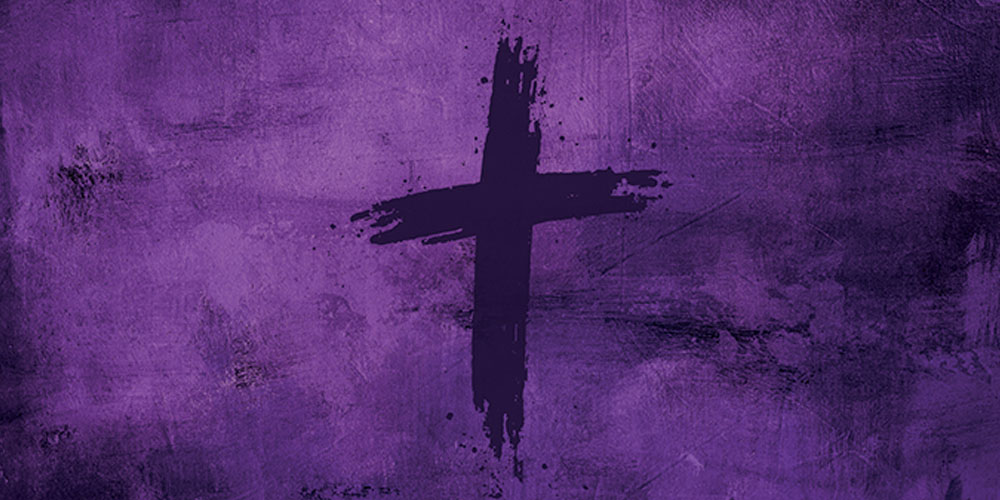 |
Lenten traditions help us focus on Jesus.
Lent is a time to concentrate on Jesus’ sacrifice on the cross. In preparation we contemplate our own sins and why we need to return to God.
Certainly, we need to turn away from our sin, but we turn to the Lord because he is slow to anger and abounding in love. He does not deal with us as our sins deserve. Rather, he dealt with his Son as our sins deserve.
Lent, a time of repentance, refocus, and renewal, has some peculiar traditions that help us with that focus.
Why do we use the color purple during Lent?
Purple, the color of royalty, was placed on Jesus just once during his life on earth. It was when the Romans soldiers ridiculed him before his crucifixion. We use purple during Lent as a reminder of the suffering Jesus endured and as a reminder of his sacrifice for our salvation.
Why do the 40 days of Lent not include Sundays? For that matter, why 40 days?
Historically, Sundays in Lent were viewed as mini Easters and so are not counted as a part of the 40 days.
The number 40 frequently appears in Scripture. During the flood, it rained for 40 days and nights. The Israelites wandered in the desert for 40 years. Moses fasted for 40 days when he was on Mount Sinai. Even Jesus fasted for 40 days when he was tempted in the wilderness.
In the early Christian church, celebration of Easter began with 40 hours of fasting. Sometime in the a.d. 300s, the time was expanded to 40 days.
Why fast or give up something for Lent?
Giving something up for Lent can be beneficial, but if Lent is only about giving up chocolate, alcohol, or Facebook, then Lent is a shallow exercise.
Giving up external things can help us focus more on spiritual things. For example, we consider our secret thoughts and attitudes, which often show themselves in words and actions, and strive to give them up. Giving something up for Lent is a focused way to carry out an everyday practice of the Christian life. We give up sin and instead of using food or Netflix for comfort, we find comfort in our Lord who deals with us graciously.
What do the ashes on Ash Wednesday mean?
In the Bible, ashes have a long history of outwardly demonstrating repentance. Job and Daniel sat in ashes. Isaiah and Jeremiah called on the people to openly mourn over sin and sit in ashes. If you receive ashes on Ash Wednesday, the pastor will say, “Remember that you are dust, and to dust you shall return.” These words give us proper perspective before the eternal God. They recall the judgment God spoke to Adam after the fall into sin, “Dust you are and to dust you will return” (Genesis 3:19). Similarly, the apostle Paul said, “The wages of sin is death” (Romans 6:23).
Ashes on Ash Wednesday remind us that we are weak and mortal. We need God.
Why do some churches say farewell to Alleluia during Lent?
Alleluia is a word of joy that means, “Praise the Lord.” As we prepare our hearts for Jesus’ death, we willingly quiet our joy. Lent is a season of repentance and sorrow over sin. Alleluias return on Easter morning when we celebrate Christ’s victory over death and sin. Because Christianity brings us to a greater understanding of our own sin and mortality, it also provides us with a deep and profound joy in Christ.
Author: Aaron Goetzinger
Volume 108, Number 2
Issue: February 2021







